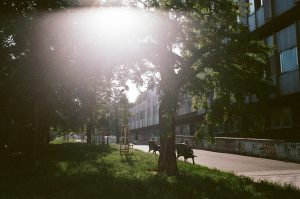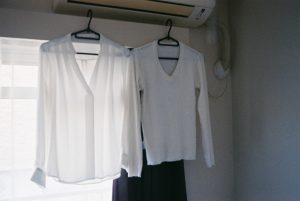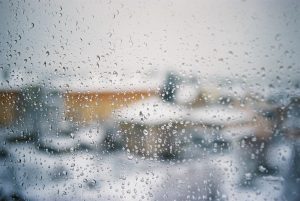
Over the past few years, my reading habits have consisted largely of obediently following recommendations from the Kindle Store. My first encounter with Michel Houellebecq was just such a casual meeting. His most famous work appears to be Atomised, a title that certainly piques one’s curiosity. But it was the equally compelling title and the beauty of the Japanese edition’s cover that led me to purchase The Extension of the Domain of Struggle, which I finished in a matter of hours. Thanks in part to the translator’s skill, the book is highly readable. Precisely because of that, it feels like something one might pass through lightly—but that, of course, is not how great books behave. After finishing it, I found myself thinking about it more and more, quietly, in the course of everyday life.
When one tries to unravel my life through the lens of “romantic love,” it becomes extraordinarily difficult to evaluate oneself objectively. At times one feels exceptional, at others utterly ordinary; sometimes blessed, sometimes not at all. I am a plain, unassuming Japanese woman. I have known fleeting romances, as well as relationships that lasted several years. Reading this book in particular brought one person vividly back to mind: a man I met when I was twenty, about ten years my senior, with whom I spent much of my early twenties in a relationship that was neither too close nor too distant, and which ultimately ended when I decided to study abroad alone. I will call him M. I realize it is unbecoming to dwell too insistently on what is past, yet I cannot help but superimpose M onto the novel’s protagonist. Put simply, M lived with a loneliness so profound that no one else could manage it for him. That had been true from the moment we met. Though he held an impressive position for his age and earned more than enough money, it was obvious that he was unfulfilled. And it was equally obvious that I could not fill that emptiness. M was exhausted by city life, exhausted by life itself, exhausted by a competitive society. I, a reckless young person chasing my dreams, must have appeared dazzling in his eyes. I, too, was desperately trying to live each day, and perhaps at the end of each one, we were soothing each other’s unhealed wounds.
That is why, when one day I suddenly told him, “I’m going to live abroad, so we won’t be able to see each other much longer,” it must have felt to him like the greatest betrayal of his life. Over the course of the following year, he slowly became an alcoholic. I couldn’t bear to watch it happen, but there were no words I could offer, nothing I could do. Because M’s loneliness was, in essence, something only M himself could heal. I was never in physical danger while I was with him, but eventually the situation became unbearable. Without saying anything, I moved, cut off all means of contact, and forcibly ended a relationship that had lasted six years. Please allow me that excuse: there was no other way.

—Now then, I will set aside my “fabricated story” here. Skimming through reviews of this novel, one often encounters words like “incel” and “misogyny.” The point being made is understandable enough. But as a woman myself, how did I feel about those aspects? Faced with the sheer extremity of the language, I could only laugh. Even if a male colleague at work secretly harbored such thoughts about me, as long as he kept his resentment inside and treated me with the face of a normal adult, I would never know (unless he slapped me, of course). And ultimately, there is nothing I could do about it anyway— even if I were slapped. Had I been a few years younger, I might have argued back or flown into a rage at someone who held such views. I am too old for that now. What remains instead is a sense of guilt, as though I had inadvertently overheard a confession that was never meant to be heard. That, of course, is one of the great pleasures of fiction.
And yet, it is not as though I live in some utopia utterly incapable of understanding the protagonist’s feelings. On the contrary, the me of my early twenties may well have shared much of his sensibility. Clinging to the margins of the advertising industry in the city, my days were filled with directionless anxiety and misandry. Even my attitude toward others was, in retrospect, unjust. I armed myself with barbs to conceal my youth. From the perspective of who I was then, advertising itself was nothing but a fabrication—an industry built entirely on illusion. To face reality head-on was to lose. And so, in the end, I relied on alcohol and on men I supposedly despised, trying to muddle my way through each day.
The reason those memories now feel like a past life is that, by sheer chance, I managed to find a goal: studying abroad. Having achieved that goal, I have continued to survive without completely rotting away, aging steadily, my edges significantly worn down. Had that not happened, I might well have left my apartment one day on the bicycle I was obsessed with at the time, wandered off, and quite literally never returned. In economically mature countries where people engage in dry, desiccated work, anyone can become like the protagonist.

Finally, I would like to touch on the brilliance of the title itself. When I looked into it more closely, I was astonished to discover that the English translation of the novel is titled Whatever. I couldn’t help laughing. At first, I doubted my eyes; surely that couldn’t be right. But then I reconsidered. No—it actually works. There is, undeniably, a certain appeal that makes one want to read it. That feeling, too, crept up on me gradually afterward. Still, it cannot compete with The Extension of the Domain of Struggle. The significance of the title is revealed within the text itself, but I would very much like readers to experience that catharsis on their own.
I was also struck by the fact that this novel was first published in 1994. Thirty years on, these kinds of problems have not been resolved; they have only grown more severe. The grasping hand of domain expansion now reaches not only offline but online as well, and it feels as though there is nowhere left to evade it. If, then, there is such a thing as “victory” in this struggle—paradoxical as it may sound—perhaps dropping out of the fight as early as possible is also an option. Thoroughly defanged and now a pacifist at heart, I find myself proposing such a hypothesis, one foot already edging outside the world.











